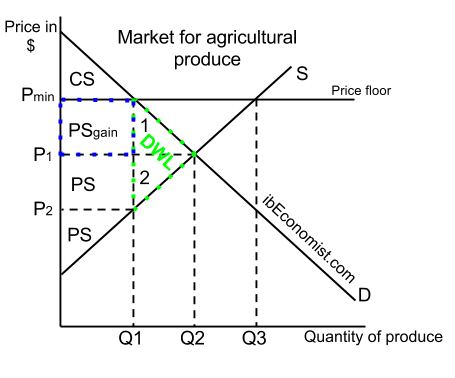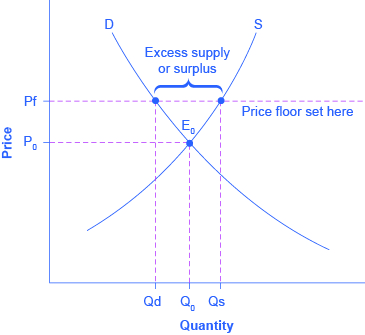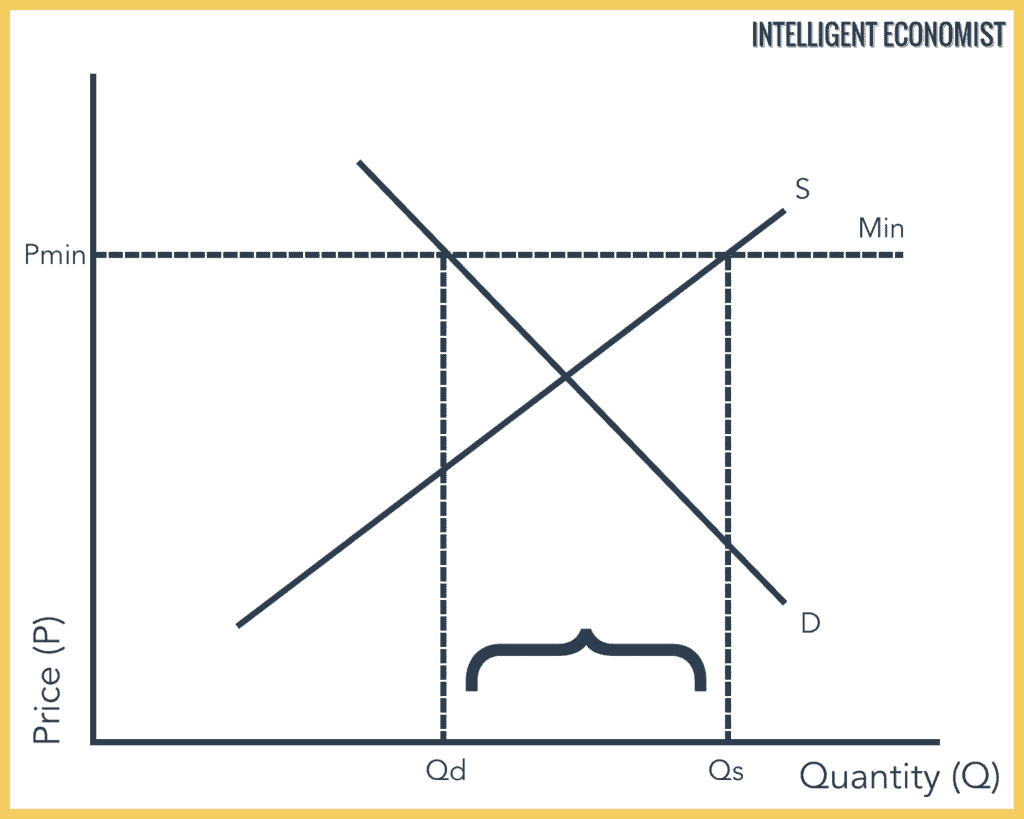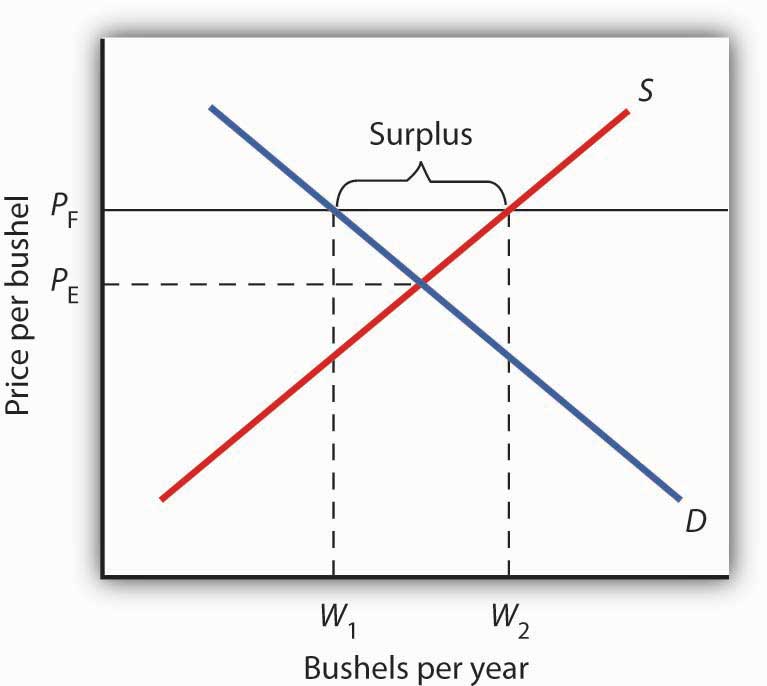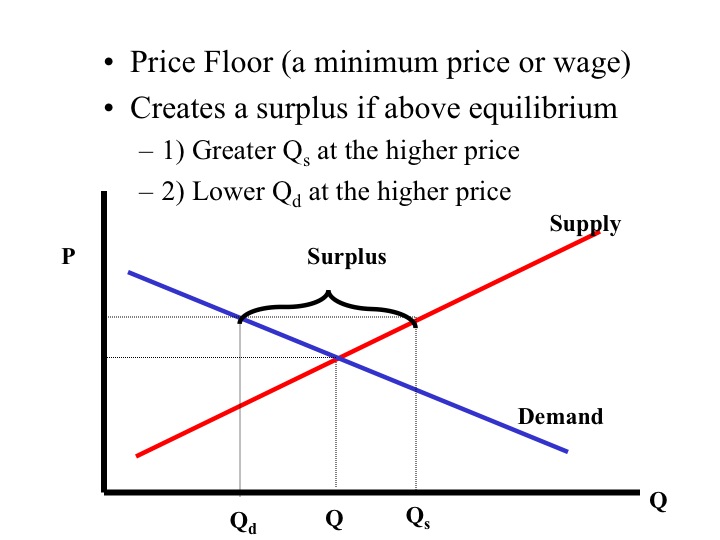Perhaps the best known example of a price floor is the minimum wage which is based on the view that someone working full time should be able to afford a basic standard of living.
Price floor economics example.
Demand curve is generally downward sloping which means that the quantity demanded increase when the price decreases and vice versa.
By observation it has been found that lower price floors are ineffective.
A price floor means that the price of a good or service cannot go lower than the regulated floor.
Price floor has been found to be of great importance in the labour wage market.
This graph shows a price floor at 3 00.
A price floor in economics is a minimum price imposed by a government or agency for a particular product or service.
A price floor is a minimum price enforced in a market by a government or self imposed by a group.
The most common example of a price floor is the minimum wage.
A few crazy things start to happen when a price floor is set.
A price floor is the other common government policy to manipulate supply and demand opposite from a price ceiling.
Similarly a typical supply curve is.
A price floor is a government or group imposed price control or limit on how low a price can be charged for a product good commodity or service.
For a price floor to be effective the minimum price has to be higher than the equilibrium price.
Common examples of price floors are the minimum wage.
A price floor must be higher than the equilibrium price in order to be effective.
It tends to create a market surplus because the quantity supplied at the price floor is higher than the quantity demanded.
A price floor is the lowest price that one can legally charge for some good or service.
A price floor is an established lower boundary on the price of a commodity in the market.
Drawing a price floor is simple.
You ll notice that the price floor is above the equilibrium price which is 2 00 in this example.
The equilibrium price commonly called the market price is the price where economic forces such as supply and demand are balanced and in the absence of external.
Demand for the commodity equals the producers supply law of supply the law of supply is a basic principle in economics that asserts.
For example many governments intervene by establishing price floors to ensure that farmers make enough money by guaranteeing a minimum price that their goods can be sold for.
For example the uk government set the price floor in the labor market for workers above the age of 25 at 7.


